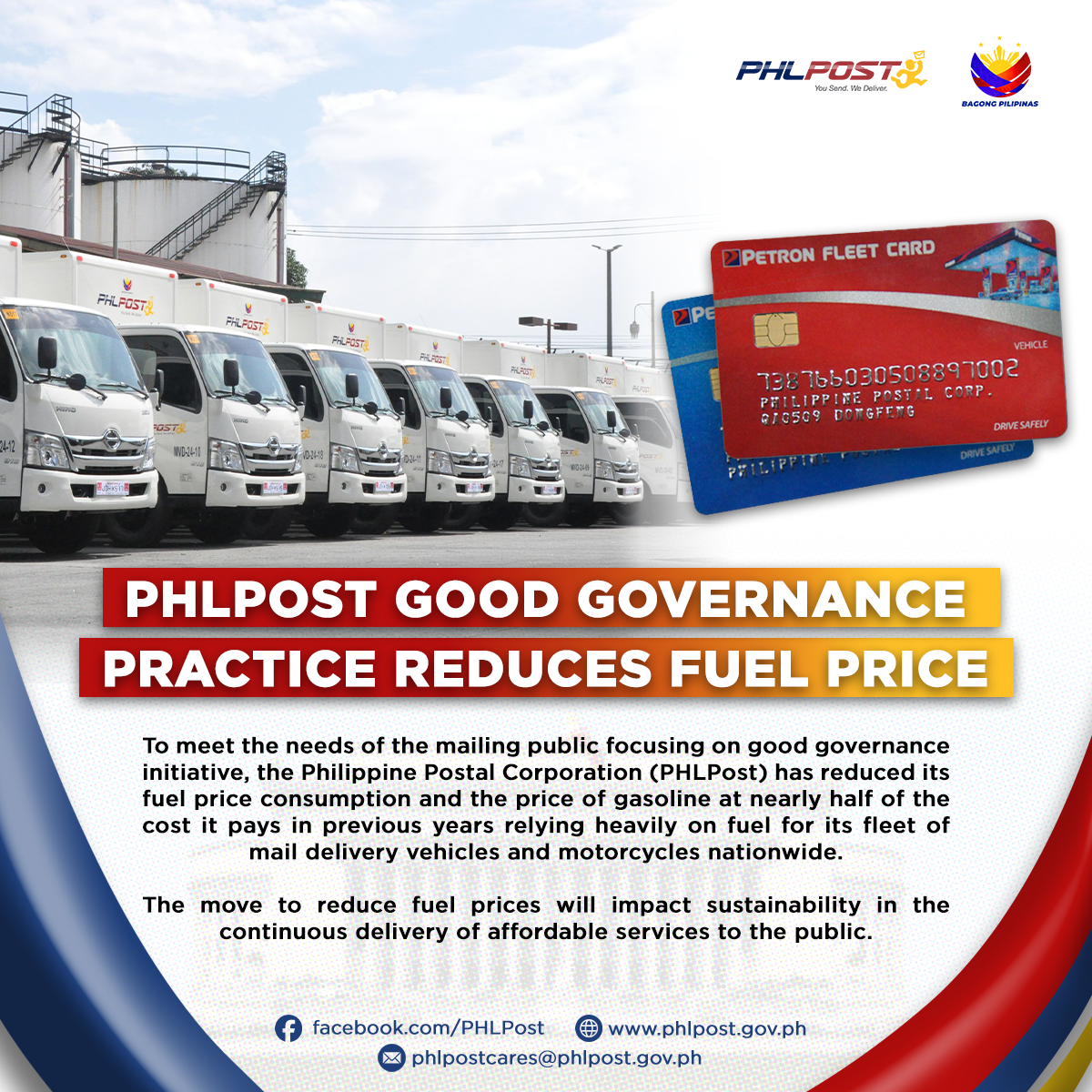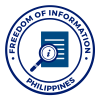 To meet the needs of the mailing public focusing on good governance initiative, the Philippine Postal Corporation (PHLPost) has reduced its fuel price consumption and the price of gasoline at nearly half of the cost it pays in previous years relying heavily on fuel for its fleet of mail delivery vehicles and motorcycles nationwide.
To meet the needs of the mailing public focusing on good governance initiative, the Philippine Postal Corporation (PHLPost) has reduced its fuel price consumption and the price of gasoline at nearly half of the cost it pays in previous years relying heavily on fuel for its fleet of mail delivery vehicles and motorcycles nationwide.
The move to reduce fuel prices will impact sustainability in the continuous delivery of affordable services to the public.
Postmaster General Luis D. Carlos said that upon his assumption to office, he immediately noticed that the price of fuel is PhP107 per liter. “That is why I immediately reviewed the contract and negotiated directly with the gasoline provider to reduce the cost”, he said.
He added, “We are happy to say that from PhP107 per liter, we have reduced the pumped price to an average of P67 per liter due to good governance. PHLPost have also reduced the fleet’s over-all operating cost in order to continuously meet the needs of the mailing public in terms of reliability, efficiency and transparency”.
PHLPost now closely monitors and controls fuel expenses by setting up spending limits and tracking spending patterns on fuel, fueling frequency and time of fueling.
“We have revised our contract with the supplier. Our vehicles now carry fleet cards and follow the pumped price in the market. PHLPost will now monitor the fuel consumption and impose a certain limit of gasoline on fuel tanks. The mail vehicles have dashboards while these fleet cards are now bonded to their plate numbers,” he said.
In addition, “PHLPost no longer uses its oil depot at CMEC motor pool in Pasay City which has added to the cost of fuel. Now, drivers can easily load to any gasoline station without going to CMEC’s motor pool to fill-up their gas tank”.
“Gasoline prices are skyrocketing worldwide. We have to manage our resources and come up with a plan to minimize our expenses and implement good governance policies in terms of accountability, transparency and anti-corruption measures”, PMG Carlos said.



